When Keisha thinks of her son Aiden, the first words that come to mind are “brave” and “sweet.” She remembers calling him “Sweet Sweet” from the time he was born. “He never cried, not even for milk… he was the sweetest,” she says. “He still is.”
Aiden’s journey has been anything but easy. At three months old, he made strange movements. “I thought initially they were seizures,” Keisha recalls. “I took him to the emergency room. From there, he [traveled by] ambulance to Boston Children’s, which is 40 minutes away. We spent three days in the hospital… They told me everything was fine.”
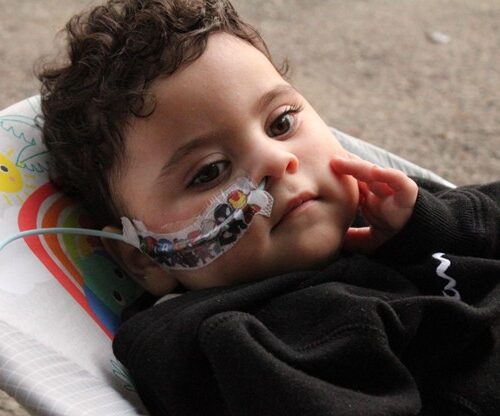
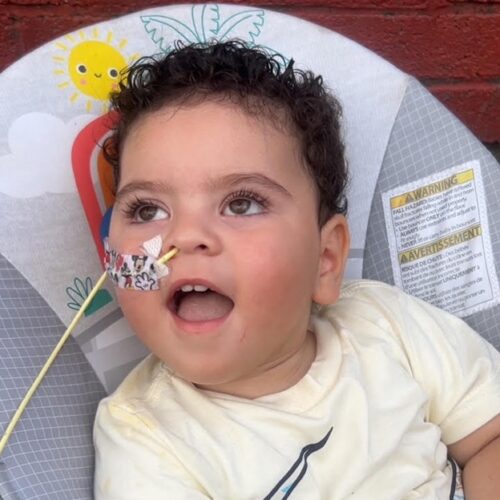
But soon after, things changed. At just four months old, Aiden developed a fever following his vaccines. Keisha thought it was normal until doctors quickly realized his condition was critical. “At this point, nobody told me that he was dying. They took him in a helicopter… they told me it’s faster, but he’s fine. But when I was driving to the hospital, I told my husband, they wouldn’t take him in a helicopter if it wasn’t that serious. I think it’s serious.”
In the ICU, doctors explained that his heart was failing. “He had a breathing tube… all types of machines, all types of medication. We spent 28 days in the hospital.”
For a few months, Aiden seemed to stabilize. Then in August 2024, he had his first major seizure. “It was a code blue in the hospital. Everybody was running. We spent a good two weeks there… but still no answers.”
October brought another crisis. Keisha noticed something strange. “In the morning I saw that he kind of turned blue, but he went right back. So I thought, maybe it’s just me… freaking out and overreacting. But then in the afternoon, he turned blue… and I said, now I’m not overreacting. I know something is wrong.”
At Boston Children’s, doctors gave Keisha the words no parent ever wants to hear. “They told me that he has Leigh syndrome, and… he’s not gonna make it into early childhood.”
Keisha remembered sitting alone in a room as a team of doctors explained the diagnosis. “Why would you bring me alone?” she thought. They know I have family, so why would they bring me into a room to tell me my child is going to die? And everybody was just silent when she said it. It was like nobody even moved. It was like the world just stopped.”
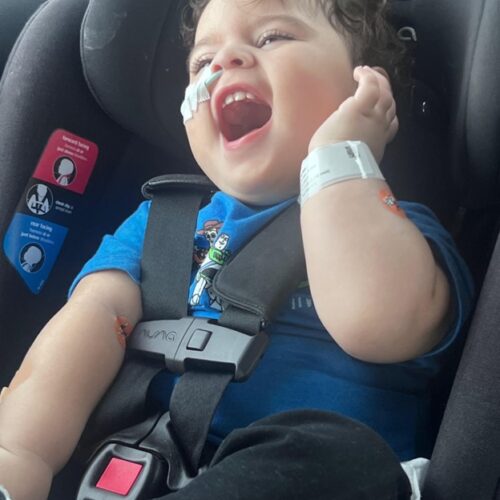
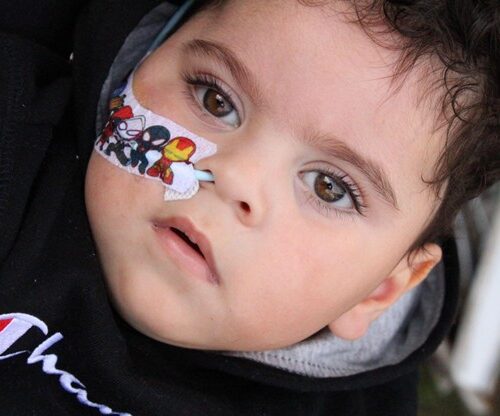
In November, Aiden suffered an 18-hour seizure that led to a stroke. “He wouldn’t laugh, move, or do anything at all…” Keisha shared her frustration with the doctors arguing over whether or not to give her son Arginine, which may offer neuroprotective benefits. Ultimately, one doctor advocated and intervened for Aiden. “The neurologist… pushed to [treat him with] Arginine… it actually reversed what the stroke did in his brain.” she recalls. “From what he is now, from when he came out of the hospital in December, he has regained a lot of skills. He’s nowhere compared to what he was. And he’s so strong because he’s overcome these things… most people wouldn’t recover as fast as he did.”
Today, at 20 months old, Aiden continues to fight. “He can’t hold his head up. He has low muscle tone. We go to physical therapy almost every day. He’s starting to control his head, but it’s still a work in progress.”
Through it all, his sweetness shines. “He’s a brave little boy… he doesn’t cry, he doesn’t fuss, even when they’re drawing blood. The nurses are surprised because he does not cry. At one point, I thought he didn’t feel pain. But he does. He’s the strongest… he’s the bravest.”
What brings Aiden joy? “He loves when you sing to him. He wants the attention. If you’re talking to him and singing, he cracks a laugh… He’s very ticklish. When you play with his feet, even putting his shoes on, he’ll start laughing.”
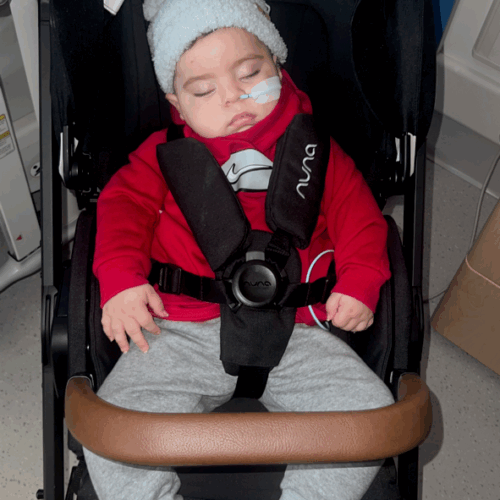
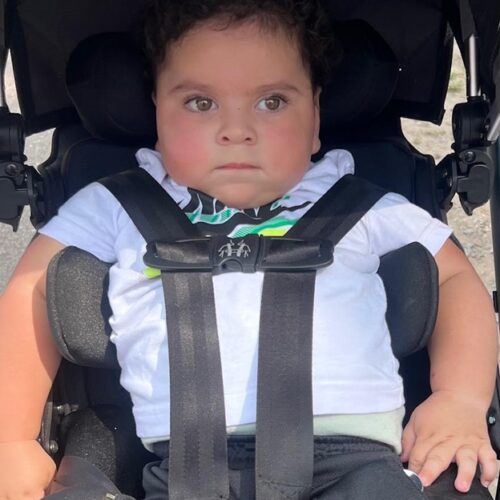
Aiden’s family surrounds him with love. He has a devoted father, a teenage sister who has grown into her role as his older sibling, and a grandmother who lives downstairs. “All his therapists love Aiden. Anything that I need, even if it’s not therapy related, they will help me. They’ll try to figure out anything that will make it better for him, for me.”
For Keisha, every moment with Aiden counts. She cherishes them all equally, and keeps all of his baby clothes and gear. “I hold everything close. I don’t want to give any of his stuff away… because I don’t know when’s the last time I’m gonna be able to get that. I celebrate everything he does, even if it’s the smallest little thing.”
Her advice to other families is simple but powerful: “It’s not the end… When I first got the diagnosis, I couldn’t even sleep. I was barely eating. But now I know. Celebrate every little thing.”
“Sweet Sweet,” as Keisha calls him, has already shown more strength and courage than most will in a lifetime. His laughter, his resilience, and his sweetness continue to bring joy to his family. Aiden’s strength fuels Keisha’s determination to keep cherishing each moment they share, reminding us that every rare disease child deserves the chance to be celebrated.



